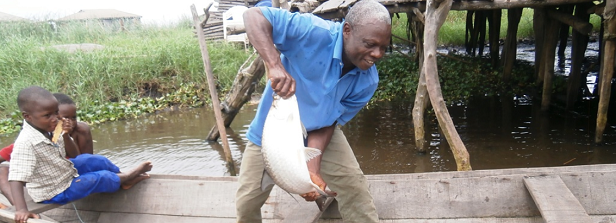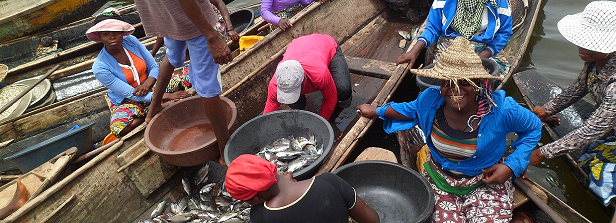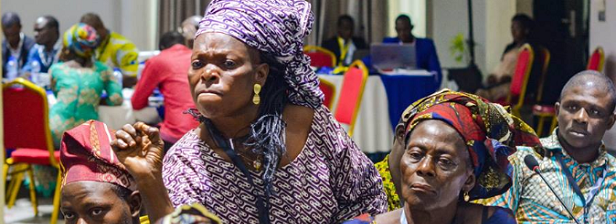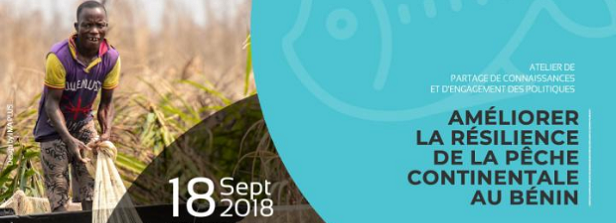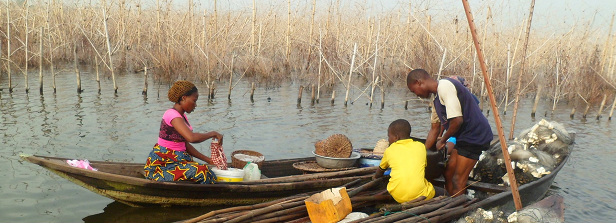Improving resilience of inland fisher communities in Benin
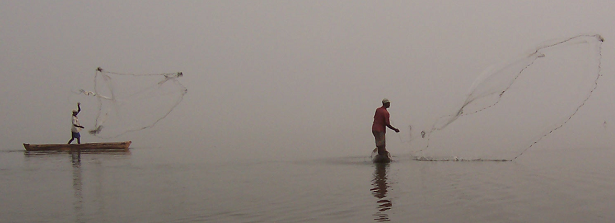
Duration: April 2015 – April 2018. This project has been finalized.
Project information
Aim: To explore the vulnerability of the coastal inland fishing sector to increasing pressures on water resources caused by a mounting population, pollution from urban areas and changing climatic conditions. The project studies the functioning of prevailing institutions among fisher communities and tests if regulations are sufficiently resilient to cope with the new challenges. Special attention is paid to woman’s access to fish processing technologies that contributes to income and increases food security.
Objective: The newly obtained knowledge will be used to strengthen the institutions of the local fish-dependent households that should improve their incomes and food security situation.
Method: A survey in two selected lagoons elicits information on regulations to share water resources, household characteristics and gender related tasks. A study on the degradation of inland water resources quantifies the production potential for inland fisheries. The integrated biophysical and survey information constitutes the empirical basis for a decision support tool that should motivate the fishery communities to implement new and sustainable regulations that guarantee the long term development of the inland fishery sector.
Country: Benin.
Dutch policy goals: Increased sustainable agricultural production; and Improved access to better nutrition.
Progress reports
Year 1: Inland fishery communities in Benin are facing increasing stress levels due to a growing population, pollution from urban areas and changing climatic conditions. This project explores the vulnerability of the coastal inland fishing sector and tests if formal and informal regulations are sufficiently resilient to meet the new challenges.
Year 2: The first activity of this project was the inception workshop on 17th April 2015. More than 30 people representing different stakeholders of the inland fishery sector in Benin participated. Participants included representatives from fishermen associations, local governments, associations of women in fishery, research, Ministry of Agriculture, local agencies and NGOs involved in inland fisheries. The project objectives were discussed, and the commitment of stakeholders ensured. The workshop initiated exchanges on the key challenges facing the inland fishery sector in Benin and how the project can contribute.
Fishery activities
A survey was helt under 841 fishermen and 227 women involved in fishery activities around the lagoon of Nokoué and the lagoon of Porto-Novo, which are inland lakes which are connected to each other, in the coastal area of Benin. Data collected on fishermen encompass formal rules, ownership, rules sharing water resources and constraints and mitigation. In regard to women, data related to formal rules, trading fish and constraints and mitigation were collected. In addition, laboratory studies were done on the lakes. These showed that the lakes are contaminated with various metals. Fish of the Nokoué-Lake and Porto-Novo lagoon experiences a high stress due to the anthropogenic activities. Further studies will be performed.
Water resources sharing
Both the survey and the laboratory tests yield data that generate knowledge on the regulations for water resources sharing in inland fishery activities, the sustainable development of the inland fishery sector in Benin, and improving the equity of gender related fishery tasks. A multi-stakeholder committee, established during the inception workshop, discusses the progress of the project and formulates recommendations to improve the implementation of the activities.
Final report
Summary of the results: Propelled by ecological degradation, mistrust, a low degree of organization and absence of regulatory measures, development scenarios of the inland fishery sector of Benin generate bleak perspectives. These appalling results were elucidated by the project “Improving the resilience of the inland fisher communities and aquatic systems to overfishing and water resource degradation in Benin”, after interviewing 837 fishermen and 237 fisher women and extensive aquatic ecological research on water quality, species composition and catch. Indeed, deep cutting regulatory measures are urgently required to restore productivity and ecological integrity of the inland waters. Yet, it is not easy to reconcile the complex and often conflicting interests between stakeholders into a coherent set of principles and procedures that reestablishes the ecosystem services. The project developed, therefore, a road map that creates a productive stakeholder engagement to balance interests of the fisher community against quality and sustainability of inland waters. Despite the quest for harmonious solutions, some mandatory measures affect all stakeholders. First, restrict access to fishery grounds; provide alternative employment for the fisher community. Second, empower fisher folks to supervise compliance of regulations. Third, and finally, stop pollution of inland waters, make city authorities aware and control polluting processes with monitoring systems.

